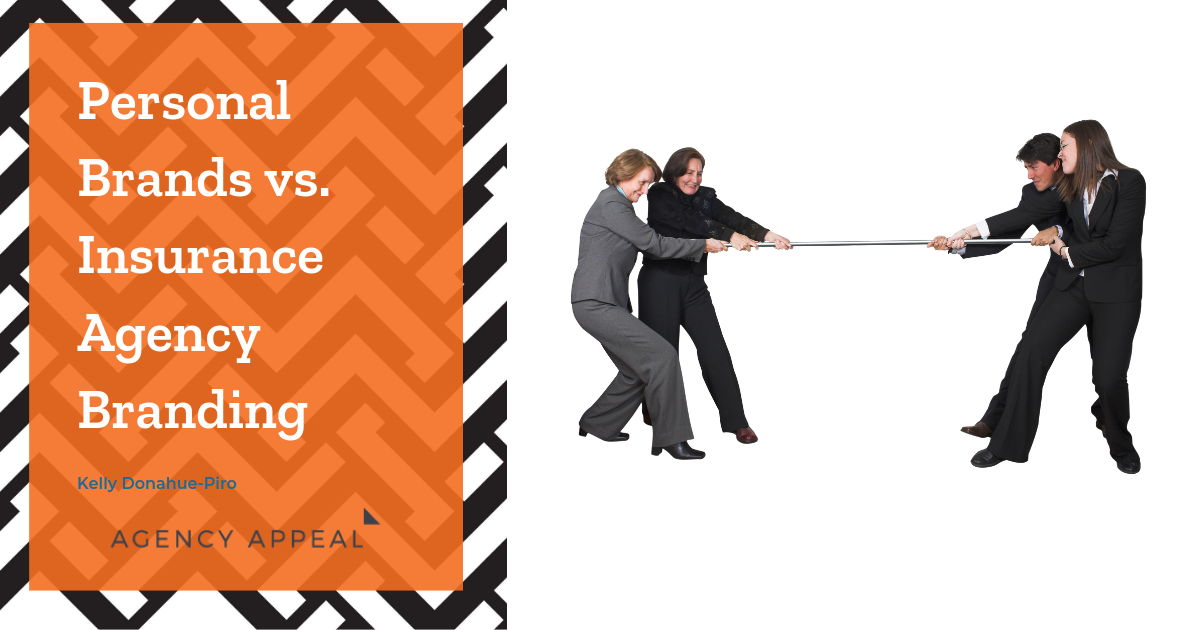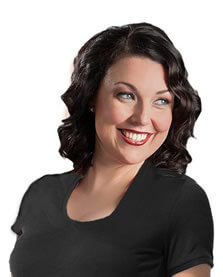I was recently sharing our sales training to a group of young, new agents at a carrier when the question came up. How do you mix your brand and the agency’s brand? What’s appropriate? It’s a complicated scenario that has a great deal of variables that I hope to walk you through in this blog. While every agency is different, and every brand is unique, the right mix includes synergy between the insurance agency and the individual.
What is a brand?
Before we get too far into this debate, let’s first start by defining what an insurance agency brand is and what it is not. The traditional definition of a brand is as follows:
Unique design, sign, symbol, words, or a combination of these, employed in creating an image that identifies a product and differentiates it from its competitors. Over time, this image becomes associated with a level of credibility, quality, and satisfaction in the consumer’s mind (see positioning). Thus brands help harried consumers in crowded and complex marketplace, by standing for certain benefits and value. Legal name for a brand is trademark and, when it identifies or represents a firm, it is called a brand name. See also corporate identity.
Read more: http://www.businessdictionary.com/definition/brand.html
But better yet, the bottom line is that a brand is an emotional connection between your defined audience and your company. It’s the feeling the Coca-Cola gives you, it’s the way you’re drawn to your favorite car brand, airline and sneaker. Bottom line: it’s a connection. But as important as what a brand is, let’s define what it’s not as well. A brand is not any of the following:
- Your logo
- Identity
- Product
- Tag line
Remember, your brand is a feeling that people have about your business.
What is a Personal Brand?
While each and every business has some form of a brand (many in different stages of development), each and every person has their own brand. Personal branding is promoting what you stand for. Here is the definition of a personal brand according to BrandYourself.com:
“Your personal brand is the unique combination of skills and experiences that make you you. Effective personal branding will differentiate you from other professionals in your field.”
The clothing we select, our verbiage, body language and personality all combine to create our personal brands. In sales, especially insurance sales, we sell ourselves as having the knowledge, compassion and expertise to help our clients and prospects. Our personal brand helps fuel our sales efforts.
Where is the Rub?
Sounds great, right? There is an agency brand and a personal brand. However, sometimes those brands come into conflict, and there’s the rub. For example, your agency brand tends to be more on the professional side, BUT your agents are wearing hoodies in social media appearances. Or your brand is people-driven, and agents won’t get into team pictures. Here are a few of the common conflicts we see between agency branding and personal branding:
- Attire/Appearance: The attire and presentation is in conflict. For example, a Director of First Impressions has purple hair. Her personal brand is to be more outgoing, and the agency’s brand is to be more conventional.
- No Mention of the Agency Brand: When an agent starts marketing individually and using their personal cell phone, website and contact information, the agency branding is missing. They are promoting themselves, not the entire entity.
- Language/Tone: While this one may be harder to define and track, your tone needs to be unified. If someone takes a tone that includes swearing and the rest of the agency does not, there is a conflict in the image presented.
- Personal Problems: When the agency is promoting safety, but an agent is engaging in risky behavior, this can cause concern. For example: texting and driving, excessive drinking and partying and personal drama that is well known in the community.
How to Get it Right?
Just like most problems in insurance, it starts with hiring the right people. The right people just kinda get it, and they avoid these problems because of the similarities between their personal brands and the agency’s brand. But even with the right people there can be some grey area. Here is a surefire way to make sure personal brands and your agency’s brand are in agreement:
- Create a brand guide: This clearly outlines your brand, so there is no grey area on what is acceptable.
- Use your brand guide in hiring: From the start everyone can see who they are dealing with and if they are a fit.
- Encourage personal/agency brands where agents are marketing themselves in unity with your brand.
- Talk about conflict of the brand openly and honestly.
Kelly Donahue-Piro is the Co-Founder of Agency Appeal and President of Agency Performance Partners.


